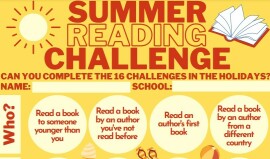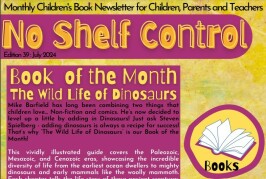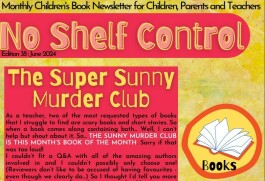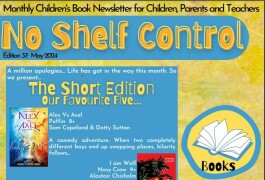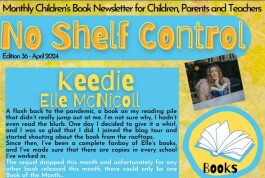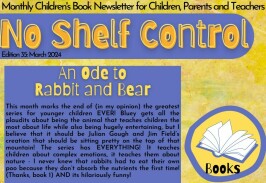Reading
Search #RBPSReading on ‘X / Twitter’
At the heart of our English curriculum, here at Ralph Butterfield Primary School, are our whole school core values. It is our intent at Ralph Butterfield Primary School to provide children with an ambitious, high-quality education in English that teaches children to speak, read and write fluently so that they can passionately and respectfully communicate their ideas and emotions to others effectively. The teaching of English is at the heart of our ambitious, broad and engaging whole school curriculum; it is embedded within all our lessons and we strive for a high standard of English for all of our children, whatever their starting points. Our main aim is to ensure every single child is inspired to develop a love of literacy and progresses in the areas of reading, writing, speaking and listening. Ralph Butterfield Primary School believes that English is vital to children’s development so that they are prepared for the next steps in their learning and future life. A hands on, broad and balanced English programme using objectives from the National Curriculum 2014, determines the knowledge that each year group and Key Stage must cover. A range of exciting opportunities are provided through a range of genres and cross-curricular themes to promote and instil a love of speaking, reading and writing.
Reading Intent
At Ralph Butterfield Primary School, our aim is for every child to have a passion for, and love of, reading. We want all children to become confident, fluent readers in order for them to make rapid progress from their starting point.
Our ambitious curriculum is designed around the needs of the children in our school and there are a variety of approaches to enable all children to make good progress.
The aims of teaching reading in our school are to develop pupils who:
· show high levels of achievement and exhibit very positive attitudes towards reading
· rapidly acquire a secure knowledge of the alphabetic code and make sustained progress in learning to read fluently and with automaticity by following Little Wandle Letters and Sounds Revised
· apply a knowledge of systematic synthetic phonics to decode unfamiliar words with increasing accuracy and speed
· participate in the teaching of phonics knowledge, skills and understanding in a systematic and enjoyable way through the Little Wandle Letters and Sounds Revised scheme
· read easily and fluently with good understanding across both fiction and non-fiction
· acquire a wider vocabulary
· develop their reading in all subjects to support their acquisition of knowledge
· develop a love of reading
· read for pleasure both at home and school on a regular basis
· through their reading, develop culturally, emotionally, intellectually, socially and spiritually;
· develop good comprehension drawing from their linguistic knowledge
· recognise that their reading knowledge and understanding will be required and applied in other areas of the curriculum
· show high levels of achievement and exhibit a love of reading
· are positive, enthusiastic and curious about their learning in reading and strive to achieve their full potential
· demonstrate our school values of determination, ambition, integrity and respect through their approach to their learning
· are curious about their learning by challenging answers (from both their peers and teachers) that they do not fully understand
Please click here to view our reading progression
How our school values are embedded in reading

Children learn to respect people from different cultures and faiths, with contrasting life experiences through a wide range of literature.

Children will become confident and fluent readers, engaging with reading beyond school in order to support future learning and development.

Children are encouraged to read challenging texts to develop their confidence, stamina and have a positive attitude towards reading.

Through reading a wide range of texts, children learn about key values and morals in order to help them become members of society.
What this looks like for children at Ralph Butterfield Primary School
At Ralph Butterfield Primary School, children read on a daily basis; this may be in their reading lesson, through cross-curricular texts, reading for pleasure and/or within class story time. From Reception, all the way through to Year 6 there is a real sense of enjoyment and a true love for reading. Children understand the importance of reading, how reading is the gateway to their learning and how reading opens a window to the world. All children have access to a class and/or phase library and a banded book, depending on their age and reading ability, along with a ‘Reading for Pleasure’ book to take home each day. Each phase has their own collection of fiction and non-fiction ‘Reading for Pleasure’ books displayed, allowing the children to have the time to choose a book which interests them, inspires them or has been recommended by a peer or member of staff.
We ensure that children have access to rich texts both through teaching and the resources in the classroom. Reading is embedded throughout the curriculum. In reading, substantive knowledge is the ability to decode and sight-read words, allowing children opportunities to read for pleasure and to develop their vocabulary. Children are then able to apply their knowledge of reading strategies to comprehend a range of texts. Children are able to use their disciplinary knowledge to interpret, compare books and use texts to back up their arguments and discussions. Children become reflective learners who reflect upon their work and the work of others, with respect. Each KS2 class studies a different high-quality text, lasting from a few weeks to a whole term depending on the text type, length and year group; this text may also be studied during daily whole class reading sessions. We passionately believe that reading and writing are inextricably linked, therefore the focus of the text will link to either a writing genre or our curriculum driver, where both reading and writing sessions encourage children to make links and become empathetic and ambitious writers.
Through reading, children have a chance to develop culturally, emotionally, intellectually, socially and spiritually. Being immersed in good quality texts develops children’s acquisition of a wide vocabulary and allows them to explore and appreciate our rich and varied literary heritage.
Many opportunities are provided outside of the classroom for reading to take place: books are read in assemblies led by staff; peer reading in assemblies with children from across different year groups; reading with older children e.g. Year 6 children listen, and read, to Reception children. Reading opportunities are also provided during break and lunchtimes on the playground or the field and through a lunchtime reading club, which enriches their reading experiences.
Reading is also celebrated through special days such as author visits and on World Book Day. The local librarian also visits the school and leads assemblies, engaging the children in the Summer Reading Challenge and in the ‘Blood Axe Challenge’. Reception children visit our local library, where they exchange their library book, listen to a story and begin to develop a love of reading from an early age. Topic books are added to phase libraries to provide additional facts and information to further develop the children’s knowledge.
Little Wandle
‘Little Wandle Letters and Sounds Revised’ is the phonics scheme which is used to teach phonics in EYFS and Key Stage 1 and to assist children with their phonics knowledge through the school. Every day, your child(ren) will have a phonics lesson where previous sounds are revised both as letter sounds and words. New sounds are taught in isolation and then read in words. Tricky words, spellings and a dictated sentence are also taught, developed and practised within this phonics lesson. Further to phonics, reading sessions are also developed, throughout the week, allowing the children to develop their decoding ability in their reading, as well as their fluency and comprehension skills. Each week, children take home the book they have read in their reading practise sessions to further practise their reading at home.
For further information and guidance, please visit the Little Wandle Letters and Sounds Revised website where you will find helpful videos. These videos contain valuable support with the pronunciation used in phonics and reading lessons in school; share the structure of phonics lessons and give support with reading at home. Please click here.
Reading for Pleasure
As a school, we love to read and wish to impart this love of reading to our students. Each week, children in each class can choose their own reading for pleasure book. This book can be read at home, shared with family and friends but above all, is for you all to enjoy!
Monthly Reading Newsletter
Regularly, within this page, we post a reading newsletter published by teacher and children's reading enthusiast Dean Boddington. You can read the most recent addition below and several back issues - enjoy!
Supporting your child to read
We all assume our child or children will find it easy to read, or love reading. But what happens if they don't? Here is some helpful advice from the Book Trust on ways to support your child with their reading.
Tips for Reading with your child - The Booktrust
When reading seems like a struggle – Oxford Reading Owl

